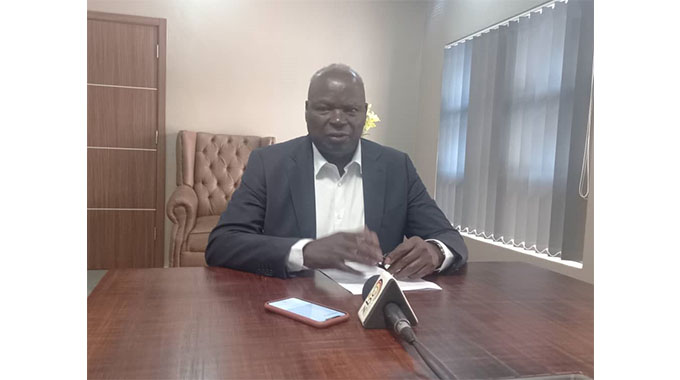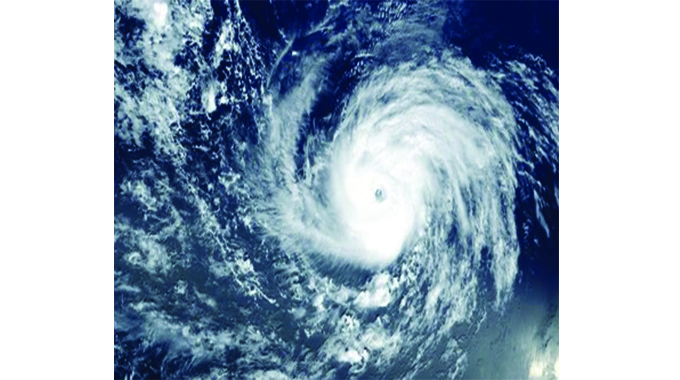The Chronicle

Midlands Bureau Chief
GOVERNMENT has capacitated the Air Force of Zimbabwe (AFZ) with fuel worth US$800 000 as part of preparations to rescue Zimbabweans who will be affected by floods.
Other departments under the Civil Protection Unit such as the police sub-aqua unit and the department of social welfare have also been capacitated to deal with potential flooding.
Heavy rains in excess of 50mm were forecast from yesterday to Sunday across the country and Government has urged Zimbabweans to be on high alert and take all the necessary measures to avoid falling victim to flooding.
 Money – Image taken from Pixabay
Money – Image taken from PixabayThe Meteorological Services Department in conjunction with the Department of Civil Protection, in a statement on Thursday, said localised heavy rains, in excess of 50mm, and flash flooding in areas with saturated soils, wetlands, and impervious grounds and along river basins, is expected.
Addressing a press conference in Gweru yesterday the Minister of Local Government and Public Works July Moyo said Government remains committed to prioritising increased Disaster Risk Management including early warning systems and contingency planning to enhance the country’s preparedness.
The minister is in Gweru for the local authorities’ 2023 budget approval process.
“The Government has capacitated the Air Force of Zimbabwe with fuel worth US$800 000 as part of preparations to rescue Zimbabweans who might be affected by floods. In that same light, other departments under the Civil Protection Unit such as the police sub-aqua unit and the department of social welfare have also been capacitated to deal with potential flooding,” said Minister Moyo.
He said the National Disaster Centre is now opening 24 hours a day to co-ordinate rescue operations.
“This will be manned 24 hours so that we respond to disasters in time,” said the minister.
Minister Moyo said the regional and national early warning systems continue monitoring and advising Government to foster its readiness for all hazards associated with this current rainfall season.
 Minister of Local Government and Public Works July Moyo
Minister of Local Government and Public Works July MoyoThere is much evidence, he said, that the current rainfall season is a positive one, thus pointing to a good agricultural season and more so, replenishment of the water bodies.
“We welcome and cherish the rains, however, the occurrence of rainfall-induced disasters is a matter of concern. During the first part of this rainfall season, the country did not experience much rainfall except hailstorms, strong winds and thunderstorms in some parts of the country which left a trail of destruction notably in Gwanda, Zaka, Mbire, Muzarabani, Zvishavane, Buhera, Insiza, Kadoma, Shamva, Hwange, and Buhera among other areas,” said Minister Moyo.
He said the peak of the rainfall season has been reached (January-March) which is normally associated with devastating cyclones and floods.
“We are pleased to announce that following the recent alert all communities are now aware of the looming situation and taking relevant action. In fact, forewarned is forearmed. The Civil Protection Unit continues to work with local authorities, traditional leaders, humanitarian and development partners, the private sector, faith-based organisations, communities and other stakeholders in saving lives and property. The provincial and district development co-ordinators, local authorities, incorporating ward and village structures at the community level are encouraged to work hand-in-glove in disaster risk reduction, as has been the tradition,” he said.
Minister Moyo took time to commend the traditional leaders for being part of the Civil Protection Organisation and more importantly upholding issues of spirituality as they mediate for a calm rainfall season.
“We count on them as they are indeed a repository of our traditions and our refuge when it comes to matters like these. I urge them to maintain proper records of people in their communities and ensure information is disseminated to the grassroots,” he said.
 Cyclone – Image taken from Shutterstock
Cyclone – Image taken from ShutterstockMinister Moyo said the new Disaster Risk Management Bill emphasises the role of village and ward assemblies in disaster risk reduction.
“To the faith-based organisations, may you continue to plead for mercy to the Almighty. You have also relentlessly assisted the Government and affected communities in times of emergency in several aspects such as provision of food, psycho-social support and safe havens. We cherish this gesture and request your good hearts to remain such,” said Minister Moyo.
He said the private sector’s contribution in disaster risk reduction and response, cannot be overemphasised.
Minister Moyo said Government has seen intervention by the private sector beneficial during Cyclone Idai and the Covid-19 periods.

“We are glad that we have a team of private contractors who have volunteered to join the civil protection system and will deploy equipment and expertise when need arises. We indeed embrace this partnership in as much as we endeavour to save property and more importantly lives of people who are your customers. Let me emphasise that disasters know no sector,” he said.
The minister directed all local authorities to clear storm drains and collect garbage in their areas of jurisdiction to minimise the impact of flash floods and water-borne diseases.
He said the issue of informal, illegal and dysfunctional settlements is indeed a thorn in the flesh.
“May we kindly ensure that measures are put in place in these settlements for the safety of those in wetlands, waterways, and riverine basins. Provision of enabling temporary infrastructure in areas where they are needed will go a long way in saving peoples’ lives as well as enhancing accessibility of the areas. Councillors, regardless of your political inclination, please prioritise service delivery in your areas of operation,” said Minister Moyo.
He said local authorities should set aside a reasonable percentage of their budgets towards disaster risk reduction.
 Acting President Constantino Chiwenga
Acting President Constantino Chiwenga“The creation of a disaster risk reduction fund in every local authority becomes paramount for ease of preparedness and response to emergencies,” said Minister Moyo.
He said the Second Republic has established community radio stations in all parts of the country as a way of bringing information and development closer to the communities.
“Local leaders should make use of these radio stations as they communicate in local languages. We encourage all players to come to the party in our relentless efforts to save the lives of the people of Zimbabwe. We need to consider the whole of Government and the whole of society approach as is always promoted by the Acting President, Dr Chiwenga who wished all of us to follow guidelines given by responsible authorities,” he said.
Article Source: The Chronicle
